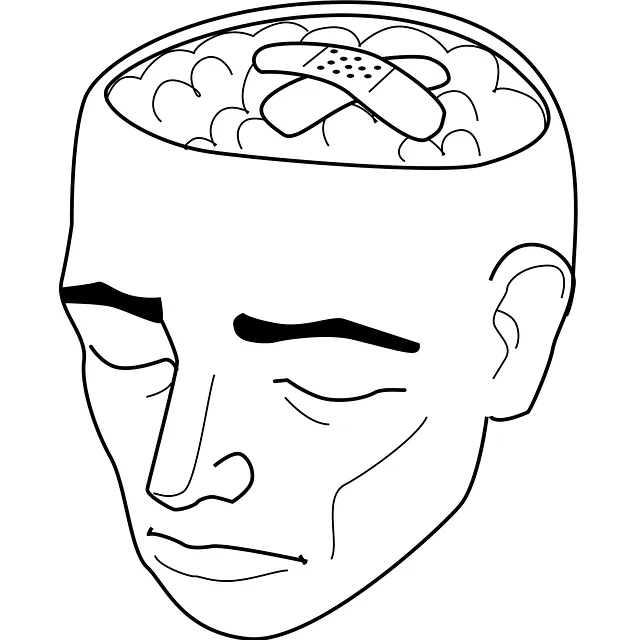In a world where mental wellness often takes a back seat, the Castle Rock Kaiser Permanente mental health center by its owner addresses this gap by offering accessible and personalized support. Mental wellness apps, leveraging technology and cultural sensitivity, emerge as game-changers for stress management, mood tracking, and cognitive behavioral therapy. These apps, tailored to diverse needs, cater to those facing barriers to traditional therapy or preferring autonomous self-care. Integrating evidence-based practices like CBT, mindfulness, and positive psychology, these apps enhance mood management and overall well-being. With robust encryption and secure storage, data security is paramount, ensuring user privacy. Marketing strategies focusing on Mind Over Matter principles and real-life success stories build trust and drive downloads, making mental health management more accessible and effective for all.
In today’s fast-paced world, mental wellness apps offer a convenient and accessible solution for managing mental health. As institutions like the Castle Rock Kaiser Permanente mental health center by owner emphasize the importance of holistic care, app development plays a pivotal role in addressing this need. This article explores key aspects of creating effective mental wellness apps, from understanding user requirements to integrating evidence-based therapies, ensuring data security, and implementing successful marketing strategies for widespread adoption.
- Understanding the Need for Mental Wellness Apps
- Designing an Effective App: Features and Functionality
- Integrating Evidence-Based Therapies and Techniques
- Data Security and Privacy Considerations
- Marketing and User Engagement Strategies for Success
Understanding the Need for Mental Wellness Apps

In today’s fast-paced world, mental wellness is a crucial aspect often overlooked amidst the hustle and bustle of daily life. This is where Castle Rock Kaiser Permanente mental health center by owner steps in as a beacon of hope, providing accessible and personalized support. The growing demand for mental health services highlights the need for innovative solutions, which is precisely where mental wellness apps come into play. These digital tools offer a discrete and convenient way to address various aspects of emotional well-being, from stress management to mood tracking and cognitive behavioral therapy techniques.
By tapping into the power of technology, mental wellness apps cater to diverse populations, especially those who may face barriers in accessing traditional therapy or prefer more autonomous self-care methods. They have the potential to revolutionize how we manage our mental health, ensuring that emotional regulation, a key aspect often targeted through such apps, becomes more achievable for all. Moreover, cultural sensitivity in mental healthcare practice, as advocated by various organizations including those focusing on Mental Health Policy Analysis and Advocacy, can be integrated into these apps to better serve a wide range of users from different backgrounds.
Designing an Effective App: Features and Functionality
When developing a mental wellness app, focusing on both comprehensive features and seamless functionality is key. A successful application should offer a suite of tools designed to support users’ mental health journeys, much like the services provided by renowned centers such as the Castle Rock Kaiser Permanente mental health center by owner. Incorporate features that promote resilience building, enabling users to develop coping mechanisms tailored to their unique needs.
Mood tracking and analysis are essential components for apps aiming to enhance mental wellness. Users should be able to monitor their emotional states, identify patterns, and gain insights into triggers affecting their mood. Additionally, integrating evidence-based practices like mindfulness exercises, meditation sessions, and cognitive-behavioral therapy (CBT) techniques can significantly contribute to the app’s effectiveness in mood management. Beyond these, consider incorporating social connectivity features that foster a sense of belonging—a crucial aspect often overlooked but vital for overall mental health.
Integrating Evidence-Based Therapies and Techniques

Integrating evidence-based therapies and techniques is a cornerstone of developing effective mental wellness apps. The Castle Rock Kaiser Permanente mental health center by owner serves as a model for combining traditional therapy methods with innovative digital solutions. By incorporating practices like cognitive behavioral therapy (CBT), mindfulness, and positive psychology, these apps can provide users with accessible and personalized support for their mental health journey.
Mental health awareness has grown significantly, leading to increased demand for trauma support services and risk assessment tools among mental health professionals. Well-designed apps can deliver evidence-based interventions tailored to individual needs, making them valuable resources in the ongoing pursuit of mental wellness. This approach not only ensures that users receive high-quality care but also promotes accessibility, enabling individuals to take charge of their mental health from the comfort of their own spaces.
Data Security and Privacy Considerations

In the realm of mental wellness app development, data security and privacy are paramount, especially considering the sensitive nature of user information. At the Castle Rock Kaiser Permanente mental health center by owner, we prioritize safeguarding personal details against potential breaches. Users entrust their thoughts, feelings, and progress to these apps, making robust encryption and secure storage systems crucial. Implementing stringent access controls ensures that only authorized personnel can view or modify data, adhering to strict privacy regulations like HIPAA (Health Insurance Portability and Accountability Act).
Furthermore, effective communication strategies are integrated into app design to foster open dialogue between users and healthcare providers. Burnout Prevention Strategies for Healthcare Providers, a key focus in mental health, can be enhanced through these apps by promoting self-care reminders and encouraging regular check-ins. Mind Over Matter Principles, when embedded in the app’s functionality, can empower users with tools to manage stress, improve mood, and cultivate resilience, ultimately contributing to improved overall well-being.
Marketing and User Engagement Strategies for Success

Marketing and user engagement go hand in hand when it comes to the success of a mental wellness app. A strategic marketing approach is essential to reach the right audience, especially considering the sensitive nature of mental health topics. One effective method is to partner with established mental health centers like the Castle Rock Kaiser Permanente center by the owner, leveraging their expertise and existing patient base. This collaboration can help build trust and credibility for the app among users seeking support.
Utilizing Mind Over Matter Principles and Resilience Building techniques in marketing campaigns can resonate deeply with potential users. Highlighting how these programs within the app contribute to improved mental wellness will engage users looking for practical tools. Additionally, incorporating user testimonials and success stories from real individuals who have benefited from similar coaching programs can significantly influence downloads and active usage.
The development of mental wellness apps offers a promising approach to addressing growing mental health concerns, particularly in urban centers like the Castle Rock Kaiser Permanente mental health center by owner. By integrating evidence-based therapies and prioritizing user engagement through innovative features, these apps can significantly impact individual well-being. As the demand for accessible mental healthcare solutions continues to rise, app developers have a unique opportunity to create tools that cater to diverse needs, ensuring better outcomes for users seeking support. Effective marketing strategies and a focus on data security are also vital to ensure these apps gain traction and become reliable resources for improved mental wellness.






